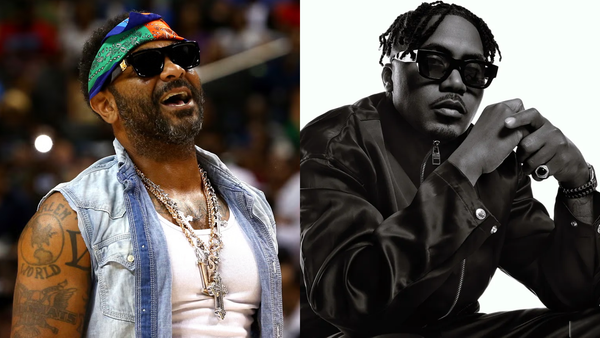Scandal's Biggest Scandal: A Post-Mortem on the Show's Erased Black Relationships
by SPJ
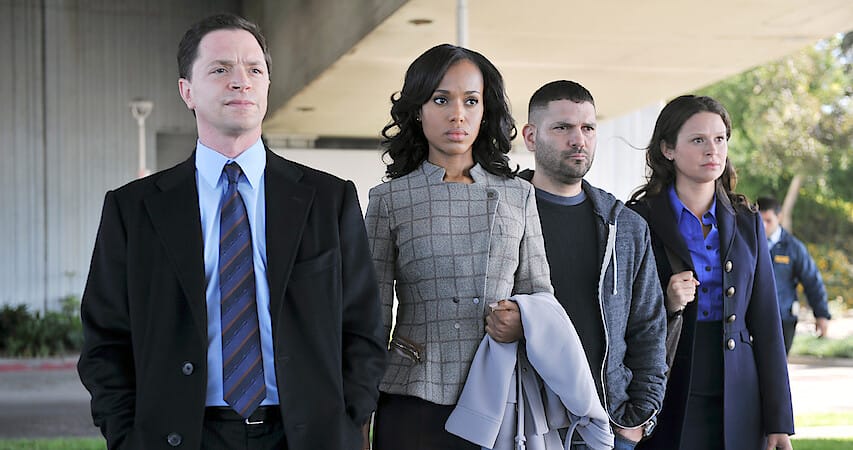
Years ago, when a friend suggested Scandal, I was newly cord-cut and searching for something to watch. I'm not a fan of the sport or theater of politics, but I gave it a shot and was hooked within the first few minutes. The show was a cultural phenomenon.
However, its most troubling aspect is one that is rarely discussed: its near-total failure to portray a successful, non-white intraracial relationship. This failure is rooted in a well-meaning but ultimately harmful "colorblind" approach to storytelling.
The Honeymoon Phase: An Initial Obsession
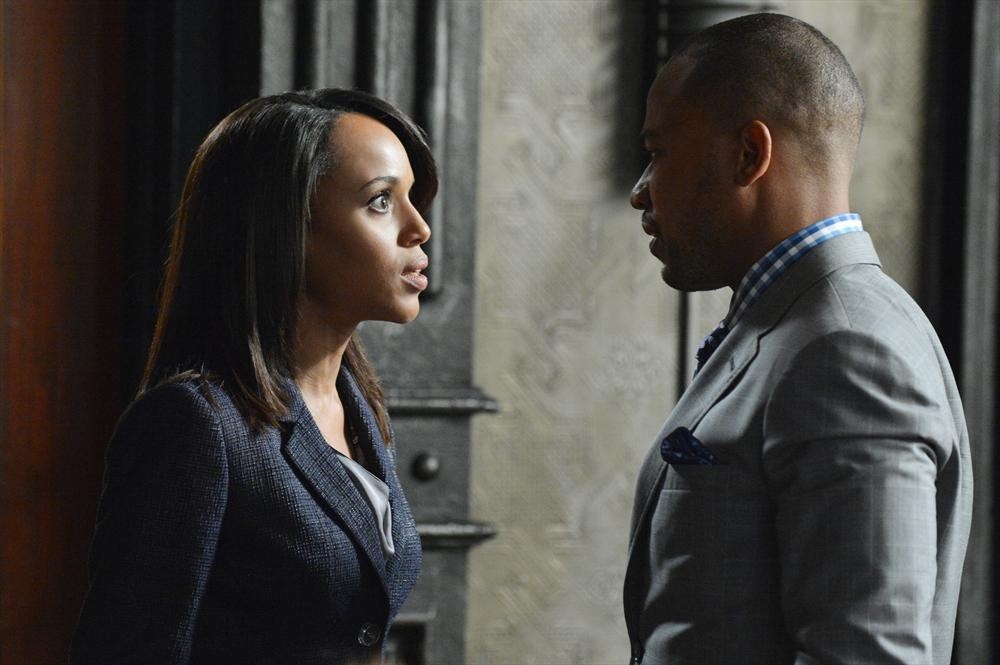
My initial buy-in was easy because the show starred Kerry Washington, an actress I was already a fan of from her work in Save the Last Dance, Ray, and Django. It always helps give a new show a fair shot if you already like the people in it. Imagine my surprise when the first scene featured Columbus Short, an actor who, at the time, I believed was destined for superstardom. That opening scene made me feel like my prediction was validated.
During my first watch, I was utterly captivated. The writing is incredibly dynamic, and the performances are enthralling up and down the cast list. The show managed to present the parts of politics I hate in an entertaining and drama-filled way. I love the rapid-fire pace of the conversations, which accomplishes two things: it packs each episode with story, and it makes the slower, more deliberate scenes stand out with greater impact. Furthermore, it was amazing to see a Black woman, Olivia, and a Black man, Rowan, wield such power.
The Re-Watch: When the Cracks Began to Show
Scandal absolutely still holds up as a technically well-made show. Any critiques I could make on that front are few and far between, as no show is perfect. But upon a second viewing, I noticed something deeply unsettling.
James Baldwin once wrote: “These movies are designed not to trouble, but to reassure; they do not reflect reality, they merely rearrange its elements into something we can bear. They also weaken our ability to deal with the world as it is, ourselves as we are.”
Scandal, for all its dramatic intrigue, falls directly into that trap.
The Problem With "Colorblind" Storytelling
My initial reaction was to be furious at the show's creator, Shonda Rhimes, but that feeling has since turned to disappointment. Rhimes famously employs colorblind writing and casting, which has undoubtedly had benefits, securing roles for several Black actors in Shondaland who might not have gotten them otherwise.
Her casting director, Linda Lowy, noted, “When I cast the pilot of Grey’s, Shonda didn’t give anybody a last name… She just said, ‘Linda, I want you to cast it the way you see the world.’”
While the intention can be well-meaning, colorblindness in a social context often ends up as a fancy word for erasure. The underlying idea becomes, "I'm going to ignore what's unique about you, so that I can tolerate your existence," with the ultimate goal being homogeneity. In any scenario where different cultures mix, the goal should be understanding and acceptance of those differences, not ignorance of them.
How Scandal Fumbled Black Issues
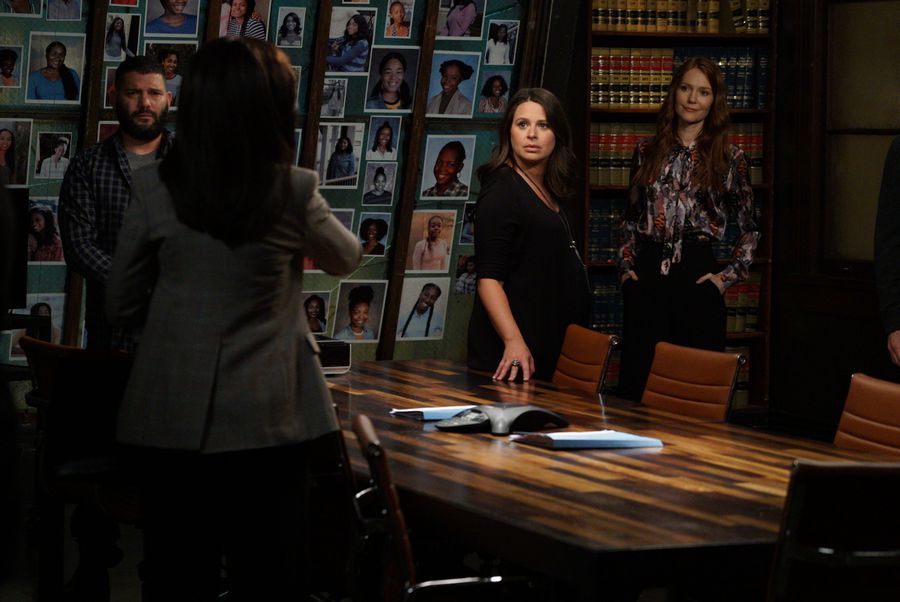
This colorblind approach may explain why, when "Black issues" do appear in the show, they often feel… weird.
- The "Lost Girls" Episode: In season 7, the show incorporated the real-life movement to find missing Black girls who weren't receiving media attention. The episode did a great job of explaining why these girls don't receive the same level of support as white girls. However, the entire storyline was relegated to a C-plot, functioning primarily as a device for Fitz to try and win Olivia back.
- The Mike Brown-Inspired Episode: In an episode loosely based on the police killing of Michael Brown, Olivia initially accuses the activist Marcus of virtue signaling and refuses to believe a cop is capable of brutality. It is only after she herself is made uncomfortable by the officer on the scene that she decides to join the protest.
The Glaring Omission: A Lack of Black Love
The biggest problem I noticed is far more specific: the lack of intraracial relationships on the show. This is an issue not just with Scandal, but with entertainment in general. Intraracial relationships should be just as visible as interracial ones; one could argue that they should be more visible, as proximity dictates we are more likely to befriend, work with, and date people who are similar to us.
The truth is, intraracial relationships are prevalent in entertainment, and in Scandal specifically, but only when both characters are white.
There is not a single successful, non-white intraracial romantic relationship between two important characters in the entire show. "Successful" here is defined within the confines of a drama named Scandal; it means the couple has been together for a significant amount of time, with both parties actively involved in the relationship.
A Case Study in Failure: The Sabotage of Olivia & Edison
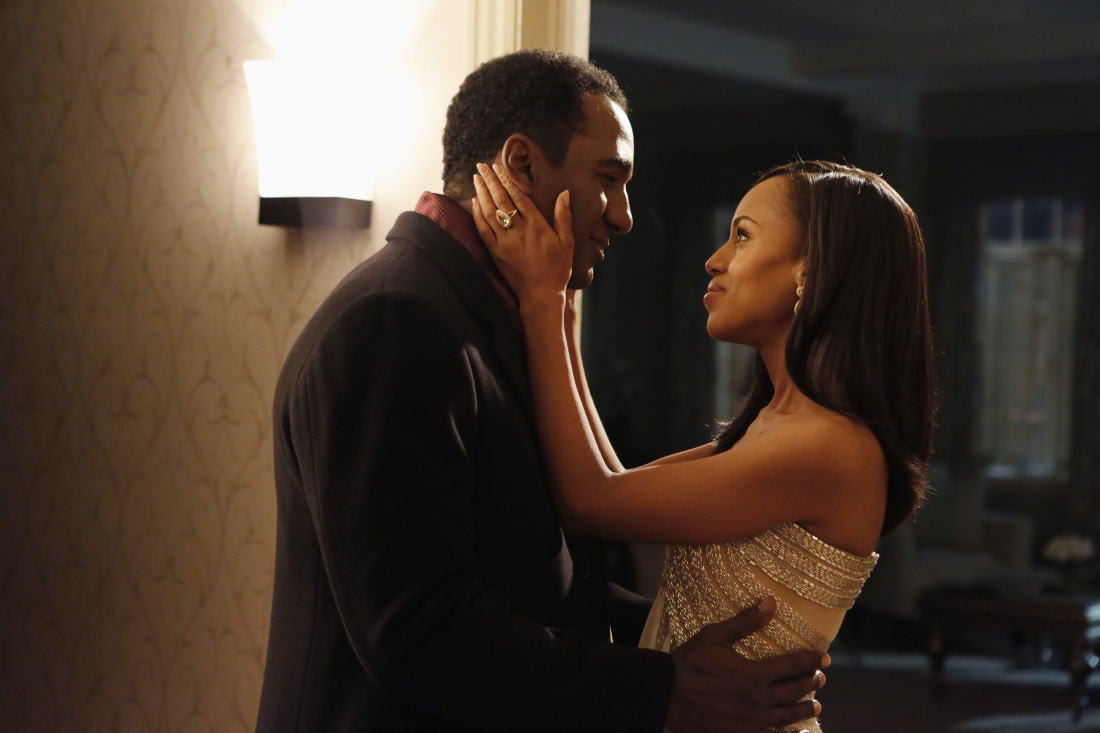
The most potent example of this failure is the relationship between Olivia Pope and Senator Edison Davis. This was, by all accounts, Olivia's healthiest and most stable relationship, but we see almost none of that on screen. Instead, we see it sabotaged. The show reveals that years earlier, Olivia broke up with Edison to protect him from her father, Rowan. But why did it have to be him? Rowan only threatened Edison because Olivia tried to use him to challenge Rowan's power—a plot point not dictated by the established character of anyone involved.
Years later, in the show's main timeline, Edison pursues Olivia again. After he correctly deduces that she is covering for Fitz, Olivia unleashes a torrent of gaslighting that is egregious to witness:
- She calls his accurate assessment "sexist and insulting," claiming he'd never suggest a man was sleeping with his male boss. This isn't sexism; it's a logical conclusion based on the evidence and his four-year history with her.
- She claims the "lengths" he's going to are a "cause for concern" and that he should "speak to someone," a clear instance of gaslighting, since she's actively part of the conspiracy he's pointing out.
- She calls his accusation "partisan political crap" and questions his integrity, which is an outright lie.
- She twists his accusation to mean he has called her a "criminal, a whore, an idiot, and a liar" to shut down the conversation.
Even after all this, Edison later apologizes and proposes to her. Yet, their relationship is ultimately destroyed. What's most telling is how the show treats male power over Olivia. Fitz, Jake, and other white men are consistently shown to have some control or influence over her. Yet Black and Brown men like Edison, Marcus, Harrison, and Huck are never allowed even to approach that status or earn her consistent deference.
It's Not "Just TV": Why This Representation Matters
When I raised these points with the friend who recommended the show, her response was, "Who cares? It's just TV." This is an incredibly misguided take. We have a wealth of evidence that people's opinions and actions are influenced by what they see on television. If media didn't matter, we wouldn't have fan communities, movements like #OscarsSoWhite, or cultural criticism outlets like this one.
This was a massive missed opportunity. The show had a Black showrunner and head writer who had the power to make different choices. With a cast full of flawed relationships, presenting a complex but committed Black couple was not only possible but would have been a powerful statement. Instead, we were given a narrative that, whether intentional or not, reinforced the erasure of Black love. And that is, more than anything, just disappointing.
What's Your Take?
This is the kind of cultural autopsy we specialize in at the Black Culture Geekz Substack. We don't just state the facts; we explore the flawed logic behind the headlines.
- Did you feel the same way about the relationships in Scandal?
- Do you think "colorblind" casting is a net positive or a net negative for representation in Hollywood?
Let us know your unfiltered thoughts in the comments. We read everything.
If you appreciate analysis that cuts through the noise and gets to the heart of the matter, subscribe to the Black Culture Geekz Substack. You'll get our weekly deep dives, exclusive show notes, and access to a community that loves to debate the culture on a higher level.
